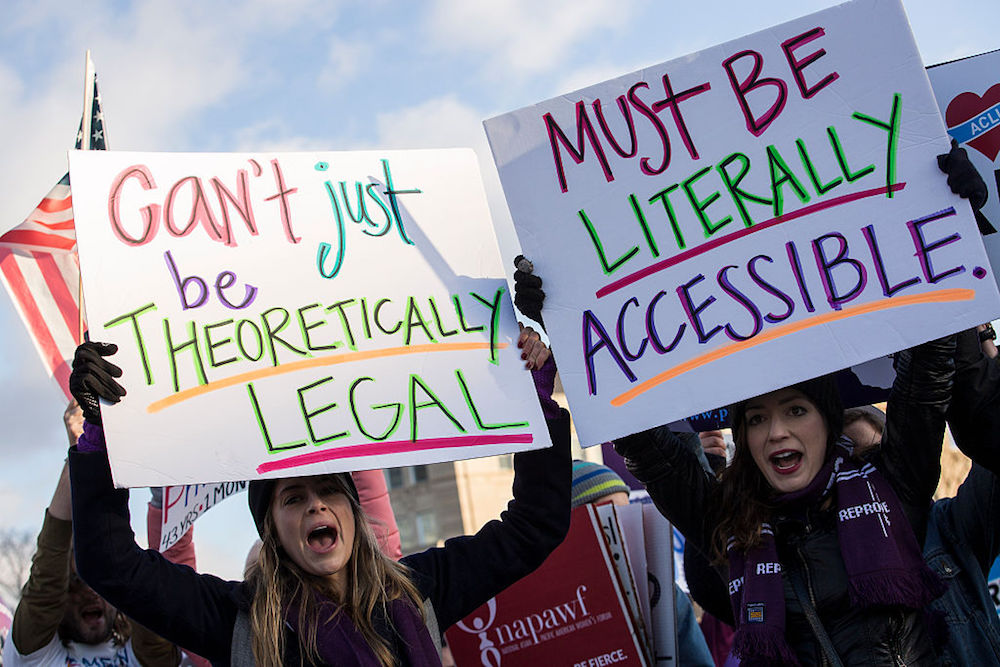New Year’s Day 2020 made history for workers, as minimum wage increases went into effect in 47 states, cities, and counties.
But when cities and states take action to raise wages, they often ignore a pretty obvious problem: across most of the country, employers routinely skirt paying the minimum wage, overtime wages, or contractually promised wages, with little fear of facing consequences.
When the Broken Laws study surveyed 4,387 workers in 2008 across Los Angeles, Chicago, and New York in low-wage industries like hospitality and domestic care, they found that 44 percent had been paid less than the law required within the past year. In 2017, the Economic Policy Institute estimated that employers steal $15 billion annually from workers by paying less than the minimum wage.
Get Talk Poverty In Your Inbox
Two basic facts add up to create an environment where wage thieves operate with impunity. The first is that most wage thieves will never be caught. Workers often fear retaliation for speaking up or don’t have the resources they’d need to file a complaint or bring a lawsuit. And only a handful of local or state wage theft enforcement agencies have demonstrated an effective strategy for tracking down wage thieves, explaining why in places like Houston, Texas, and Charlotte, North Carolina, a typical year might only bring a single successful wage theft prosecution.
The second is that even when wage thieves are caught, our legal system protects business owners at the expense of workers: wealthy individuals and profitable companies get ample opportunity to claim they just don’t have the money to pay workers what they’re owed. A 15-state investigation by Politico found that workers who won their wage theft lawsuits only ultimately recovered 59 percent of the money that judges or juries had agreed they’d been owed. In New York City, ten delivery workers won a $700,000 wage theft ruling against the restaurant Indus Valley — although these workers started their complaint in 2008 and won their lawsuit before a federal judge in 2014, they say they’ve collected only about 15 percent of what they’re owed.
These are both solvable problems if we’re willing to change a legal and economic system that stacks the deck against working people.
Catching Wage Thieves In the Act
Workers know complaining about unpaid or underpaid hours can mean risking their jobs or getting shunted into a less favorable schedule. According to a 2019 report by the National Employment Law Project, 45 states lack one or more of the provisions of an effective anti-retaliation law.
Undocumented workers are especially vulnerable to retaliation. Speaking about undocumented workers in Houston, Texas, Josef Buenker, a private employment lawyer, said, “I can’t count the number of times workers have told us that that it’s an overt threat used against them, [when bosses say] ‘I’m going to report you to ICE, what are you going to do about it?’” He added, “We regularly meet with people who want to pursue their claim, but then they go home and think about it and decide not to because they’re concerned about their immigration status.” As long as the threat of deportation can be used against workers, wage theft will persist. Aggressive deportation policies undermine labor conditions for both immigrants and for their U.S.-born coworkers, whose bargaining power is undermined by their bosses’ ability to exploit those without papers.
The cost of going to court is another key consideration. Some workers are able to find free legal counsel from a local legal services agency, but these agencies are stretched thin, forced to choose between helping people in poverty avoid eviction, fight wrongful debt collection lawsuits, win wage theft cases, and gain protection from domestic violence. A worker making more than $15,000 per year is often totally ineligible for legal services aid.
Some legal aid organizations lack the funding to take on wage theft cases at all. In Charlotte, North Carolina, for example, there are two organizations providing civil representation to low-income workers, the Charlotte Center for Legal Advocacy and Legal Aid of North Carolina, explained Ken Schorr, Charlotte Center for Legal Advocacy’s executive director, and he noted that neither organization will represent low-income workers in court for wage theft cases. Schorr explained, “The majority of our funding is grant-based for particular areas.” He added, “We haven’t been able to find funding to do employment law based work such as wage claims.” Our country considers legal representation in civil cases a privilege, not a right — which means many low-wage workers can’t use the court system to hold their employers accountable.
That’s why, as Tallulah Knopp, a staff attorney at Boston’s Volunteer Lawyer Project, points out, it’s so important for states to have clear “fee-shifting” statutes: in many states, when a worker wins a wage theft lawsuit, the employer will have to pay their back wages, but not necessarily their legal fees. A strong “fee-shifting” statute, like Massachusetts’, sets a standard where, if a worker wins their case, their employer pays the legal fees, instead of the worker having to pay the lawyer out of their recovered damages. That encourages private lawyers to come to the table on behalf of workers, Knopp explains. In a state like Texas, where filing fees are $400, and many attorneys bill at $100 per hour or more, there’s no real way to get your wages back if you’re owed just $500. That’s why Knopp and Nick Wertsch, of Texas’ Workers Defense Project, both point to fee-shifting statutes as a critical part of fighting wage theft.
But Jennifer Lee, associate professor at Temple Law School, argues that relying on workers to come forward against their bosses can’t solve wage theft by itself, even in the presence of fee-shifting.
As Lee explains, the information barriers and risks for workers to report their own wage theft remain high, even when states try to protect workers from retaliation. “The number of workers who are suffering violations versus the number of people who come forward is miniscule,” says Lee.
After investigating 141 state and local anti-wage-theft laws, she concluded that we can’t rely on workers to file complaints or lawsuits: while a worker’s “private right of action” can be part of the solution, we also need strong wage theft enforcement agencies that don’t just react to workers’ complaints, but are on the lookout for abuse.
Funding is part of the problem in some cities and states, says Lee, but she also points to cities whose enforcement agencies are dramatically underutilized. Many agencies, Lee says, wait for workers to file complaints, rather than entering the community to inform workers of their rights, and to find bad actors.
The most promising approach, says Lee, is collaboration between government agencies and workers’ centers. Although workers in the industries susceptible to wage theft often aren’t unionized, many are organized through local worker’s centers like the Domestic Worker & Day Laborer Center of Chicago and Houston’s Fe y Justicia. “Agencies aren’t always in the best position to identify which workplaces have issues or to build trust with workers,” says Lee, adding that worker’s centers are often more embedded in the community. The cooperation of worker’s centers gathers useful information about labor conditions and can encourage more workers to come forward. Lee pointed to Seattle as an example of a city that has effectively partnered with local community groups — their Office of Labor Standards selected ten community organizations to receive $1 million contracts to provide education and outreach to workers. Reporting by the Philadelphia Enquirer found that, in 2018, Seattle’s Office of Labor Standards received 10 times the number of wage theft questions and complaints than Philadelphia received, a larger city that lacked such a strategy.
Making Them Pay the Bill
But even once wage theft is brought to light, workers don’t always get paid. Across the country, nominally “successful” wage theft lawsuits often result in empty judgments: just because a judge or jury agreed that a worker experienced wage theft, it doesn’t always mean that the worker will be able to collect her back wages.
A report by the National Center for Law and Economic Justice found at least $125 million in unpaid wage theft judgments and orders within New York City alone. Carmela Huang, a supervising attorney at New York City’s Legal Aid Society, says “it’s just far too easy for employers to transfer their assets.” As an example, Huang explains, a restaurant owner faced with a high-dollar wage theft lawsuit will recruit a friend to create a new corporation and transfer the restaurant to the new corporation. That makes the original corporation facing the lawsuit nominally unable to pay its wage debts. “For more than a decade employer-side attorneys have been advising clients on how to hide their assets — it is definitely a part of the practice to advise clients on how to make themselves judgment-proof,” says Huang. That’s why the Legal Aid Society called on New York Governor Andrew Cuomo to sign the SWEAT Act, which would have allowed workers to place a lien on their employers’ assets while wage theft litigation was ongoing, stopping bad companies from using suspicious transfers to hide assets. Cuomo vetoed the SWEAT Act on January 2.
Our country arrests 1.5 million people for burglary and larceny per year — but workers facing stolen wages are routinely deprived of justice. Businesses can dial 911 and expect the cops to show up to arrest a shoplifter, while millions of Americans work for poverty wages, as victims of theft from their employers, with little hope of recourse. To end wage theft, we should lift the threat of deportation, guarantee workers access to the legal system, build strong wage theft enforcement agencies, and close the loopholes that allow employers to shirk responsibility to pay owed wages.











